Water Damage from Water Heater | How to Repair Water Damage from a Leaking Water Heater
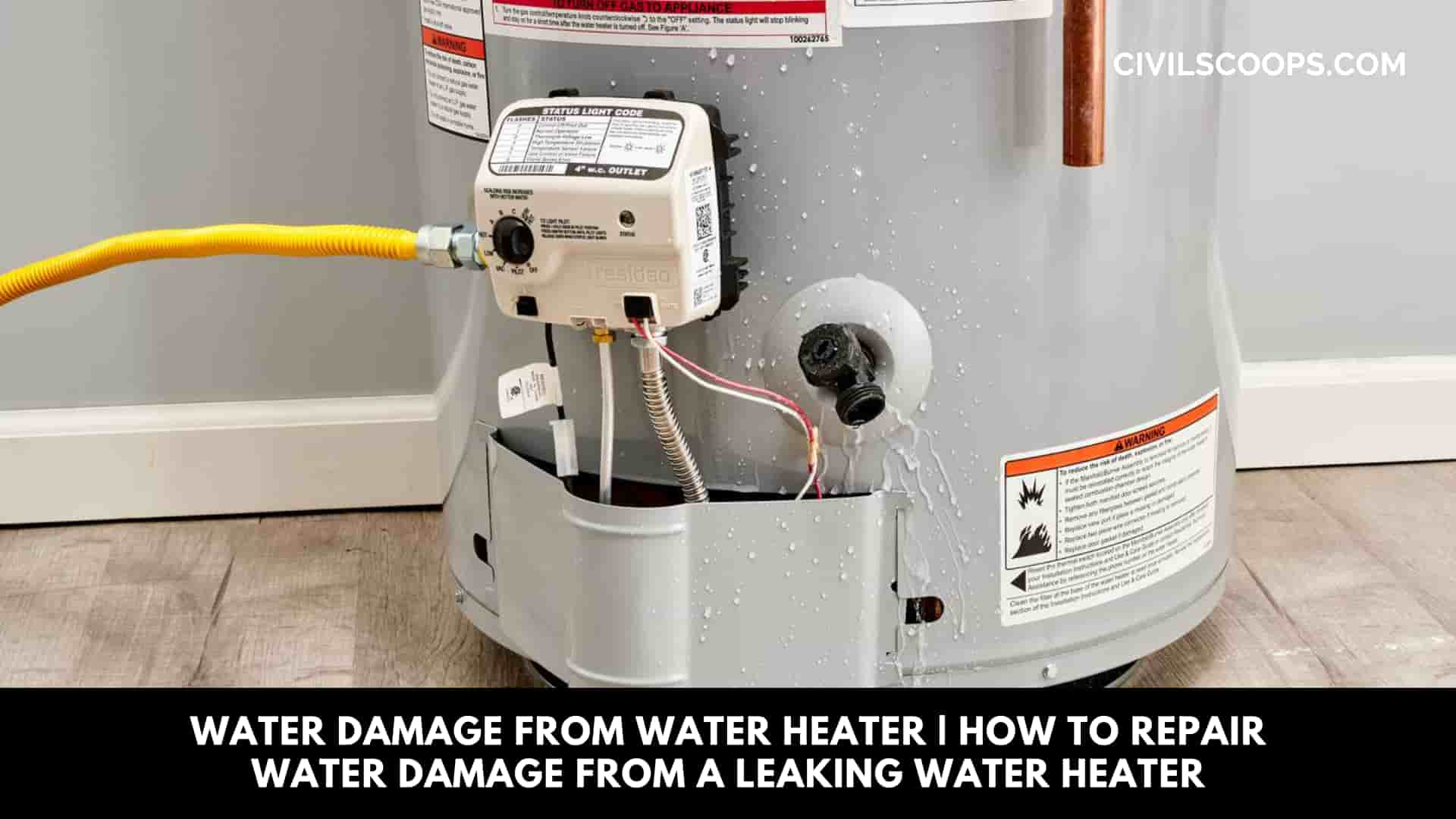
Table of Contents
Water Damage from Water Heater
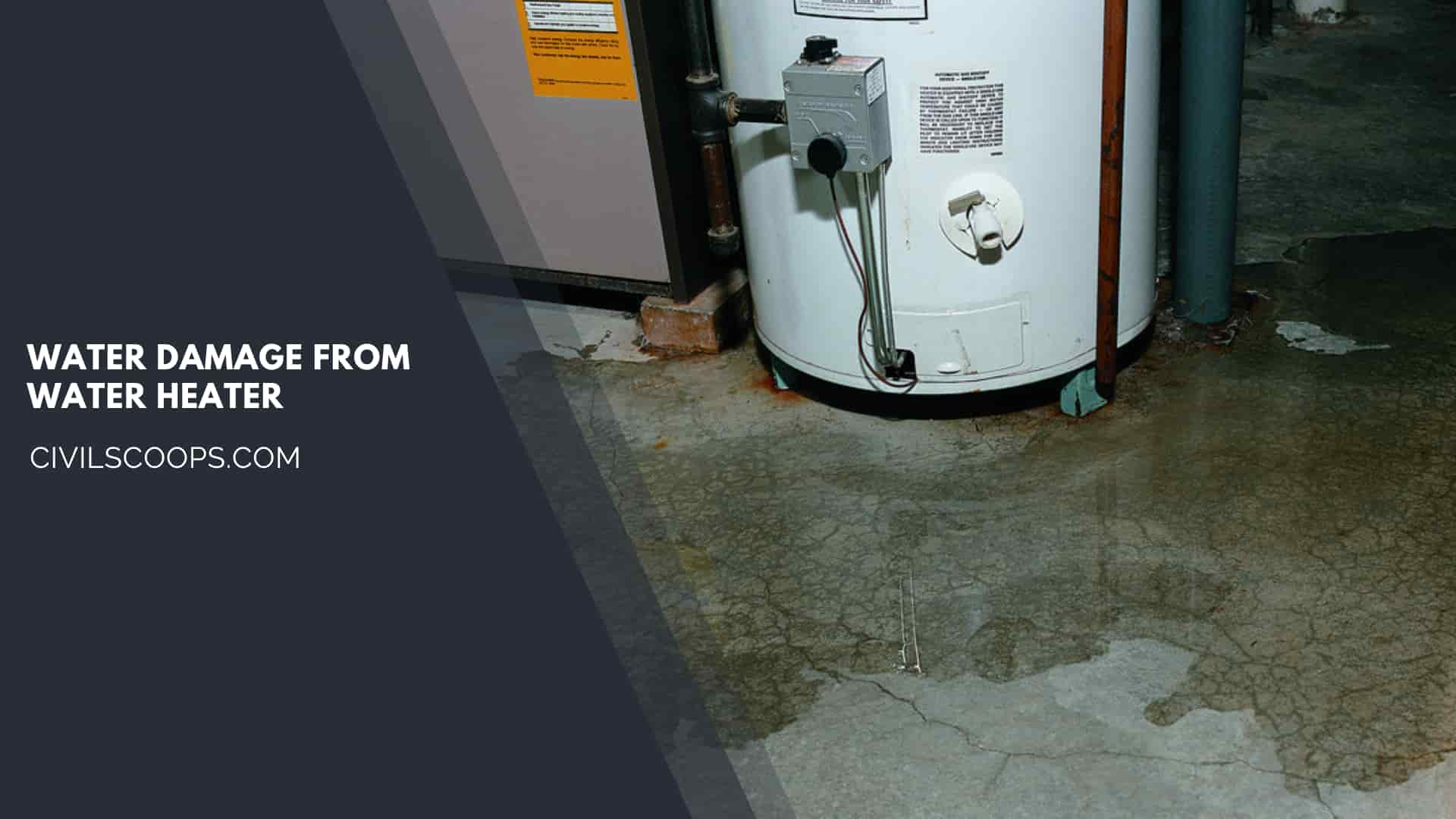
Water damage from a water heater is now a common problem in all residential, commercial, and industrial places.
Water heaters are generally used in a residential place, and the lifespan of any water heater is near about 10 to 20 years, and they are very effective in their service life period.
Water damage from the water heater can cause severe damage to your home if the heater is not well and properly maintained.
Water damage is happened by pipe damage and other property damages; so, it is very harmful to anyone.
A maximum number of water heater failure (near about 69%) is happed by leakage or sudden burst.
Water damage from the water heater can damage your property very much because water is the biggest enemy of Reinforced Cement Concrete and steel reinforcement.
Water Heater Failure Reason
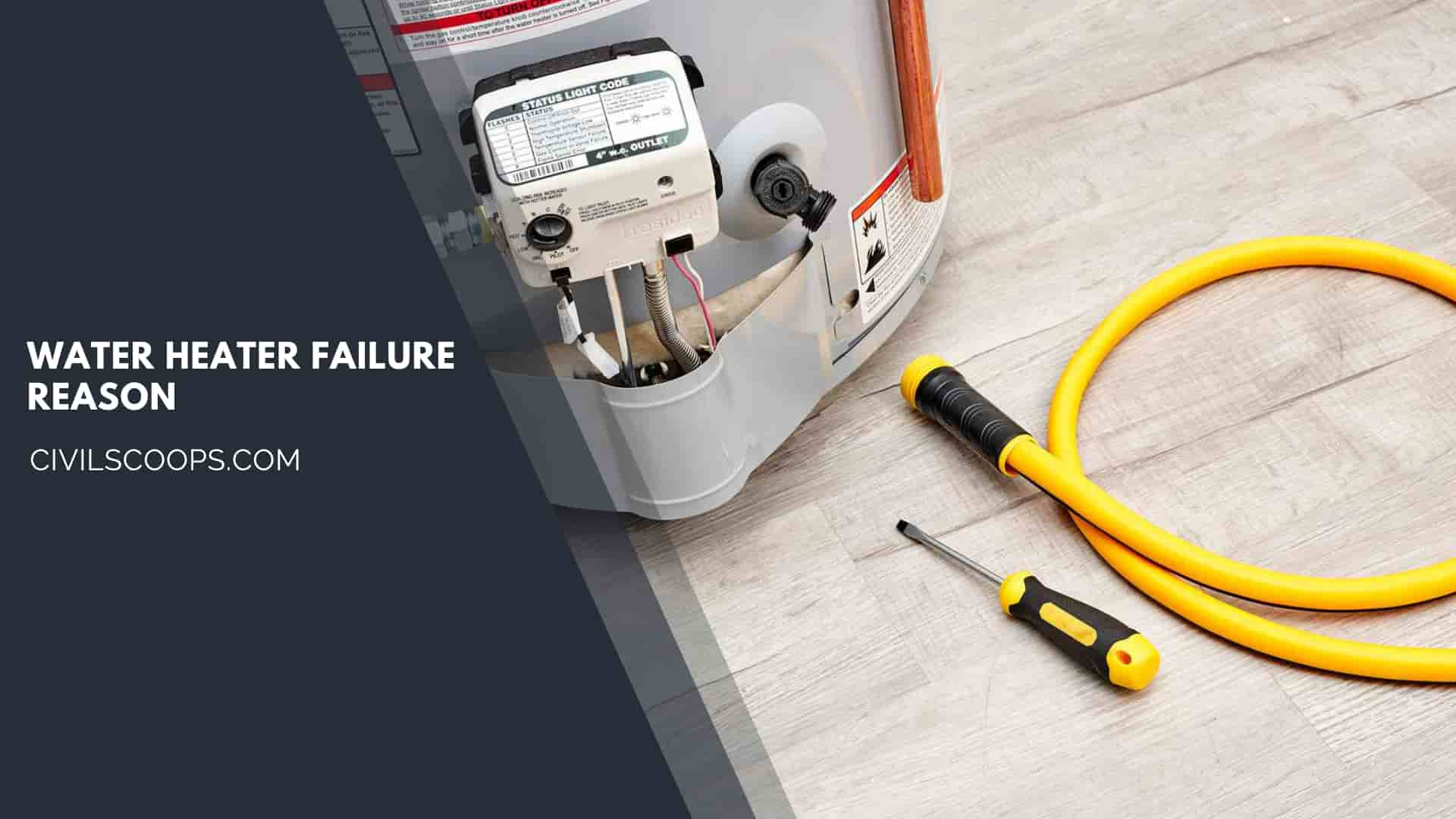
There are many reasons are there behind the water heater failure reasons which cause water damage, but the most important reason is lack of maintenance. There are also some other reasons for water heater failure. Those are in the following below.
1. Corrosion
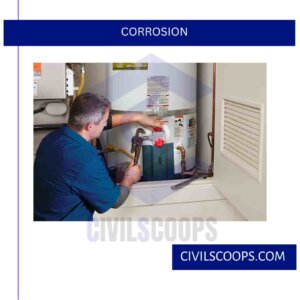
Corrosion is another enemy of water heater water damage. This damage has happened because the anode rod of the water heater is getting corroded.
The interior part of the water heater tank is made of steel, and we all know that steel is highly sensitive to water and it is corrosion-prone metal. So, we need to change the anode rod with some regular intervals to avoid water damages.
Also Read: What Is Spalling Concrete | Causes of Spalling in Concrete | Repairing Concrete Spalding
2. Sediment/ Scale
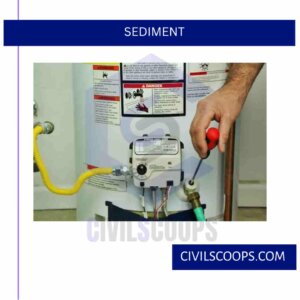
If we are boiling hard water, then there is a major problem of scaling; it is a very severe reason for water damage problems from water heaters.
If we are not cleaning the water heater at a regular interval, then sedimentation will be shown in the bottom part of the water heater tank. It will also create many hazardous problematic situations.
The water heater also faces some problems if you install it in the basement of the building because it is inundated with water. The water heater damage can be detrimental.
Generally, water heaters are damaged related to electrical surge-related problems.
How to Repair Water Damage from a Leaking Water Heater?
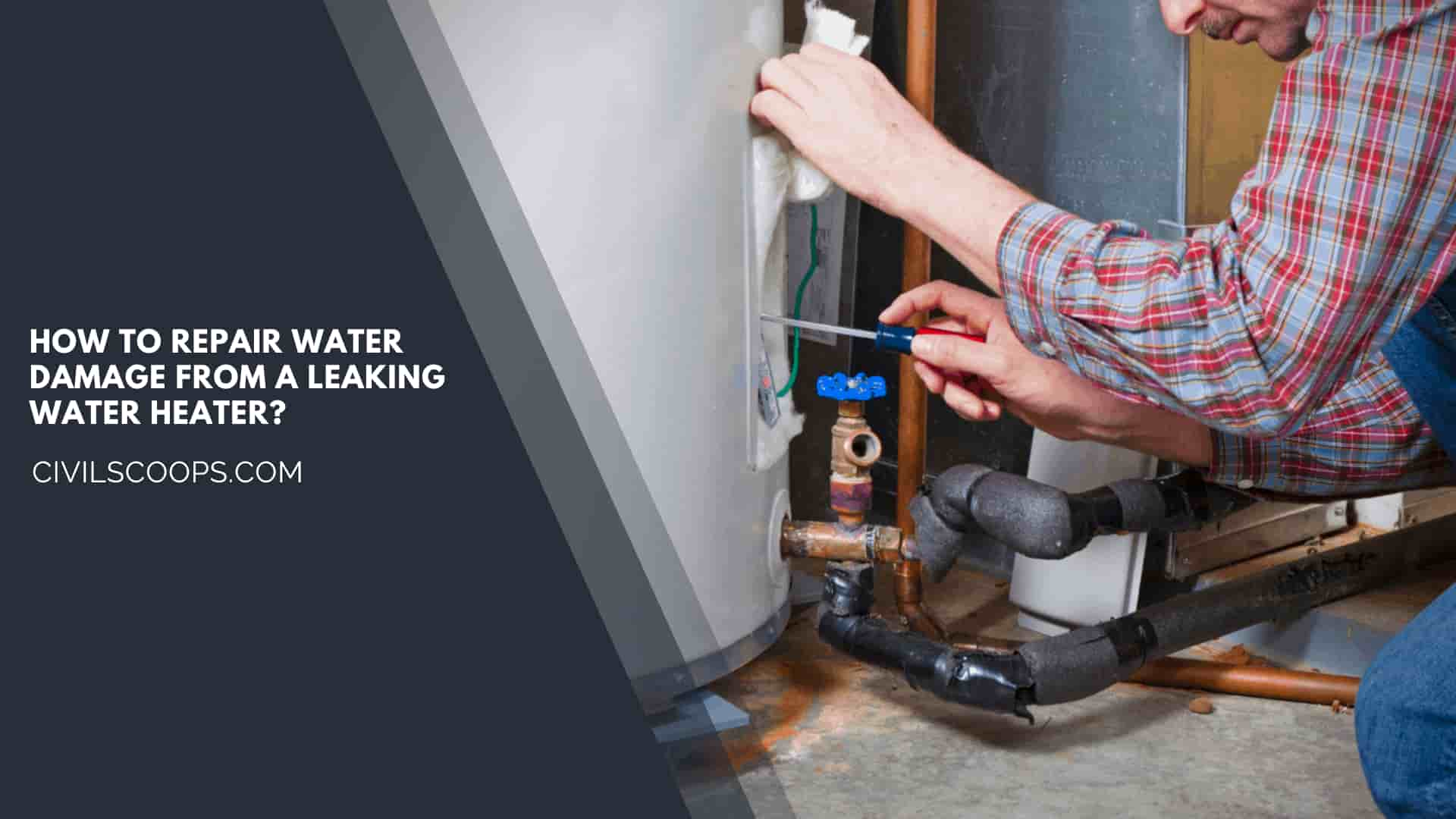
There are many steps of repairing the process of water damage from a leaking water heater. Those are-
1. Mold and Mildew Removing
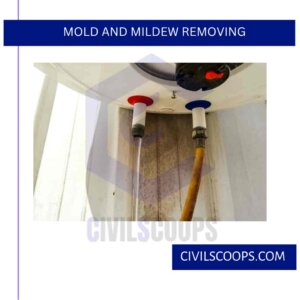
Mold and mildew is common problem in the leaking water heater. Mold can be very dangerous if you are not taking any care of it within some time.
To remove the mold, we need to take 1 cup of bleach to 7 cups of water and gently put the mixture in a spray bottle and apply it gently on the affected areas. We have to repeat these steps in regular intervals to protect the place from mold and mildew.
Also Read: Repairing Water Damaged Wall | How to Repairing Water Damaged Wall | How to Fix Water Damaged Wall
2. Baseboards and Trim
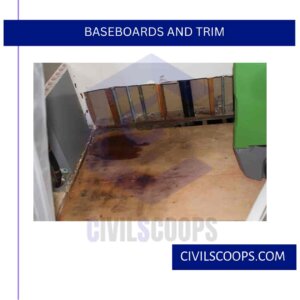
Baseboards and trims are things that are easily damaged by water contact. At first, we need to cut that damaged portion of the baseboards with a sharp knife to remove the paint seal.
Then you slowly continue your operation to remove the nails and get a grip to pull out that portion. Finally, you need to replace it with another new one at that place.
3. Wood Floors

The wooden floor is prone to water damage. Due to water damage on the wooden floor, discoloration happens. To prevent this problem, we need to use a polyurethane coating over it, and sometimes a waxing layer is also applied. The best option for the floor damage treatment is repairing the subfloor and refinishing the entire room.
4. Carpets

Carpets are a very useful thing, and it is widely used in residential houses, but it is very difficult to resist water damage. If water is flowing over it and you do not take the necessary action, then it will create some serious problem, and that will affect the floor of your building. So, you need to use a vacuum cleaner to clean the water from the carpet.
5. Drywall Repair
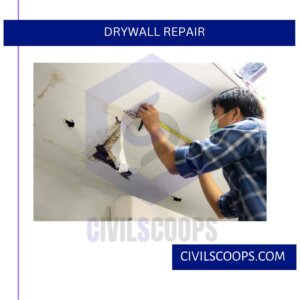
If the drywall damaged area is small, then it would be very easy to repair; you just need to need to cut out the damaged area and make a hole by using a drill machine.
Then you just need to fix another portion of the drywall at the same place. To fix this, you just need to put knife and drywall components and apply them over the wall and edges.
6. Plaster Repair

Plaster is also affected by water damage. If the plaster is damaged, then you need to put some serious care about that. Generally, you need to remove the whole plaster of that portion and provide new plaster along with water-resistant liquids. White patches are shown generally in the water-damaged plasters.
7. Pests

This is a minor reason, but it also affects that. So, you need to care about these parts and prevent mice, cockroaches, birds, and other animals or insects not to enter your home or basement.
[su_box title=”FAQ” style=”default” box_color=”#333333″ title_color=”#FFFFFF” radius=”3″ class=”” id=””]
Water Damage from Water Heater
Sediment buildup, rust, and high water pressure are some of the most common causes of water heater failure. Improper installation or equipment sizing are other commonly found issues. A leak can occur near the supply line which can cause damage to dry wall or flooring.
What Happens When Water Heater Leaks?
Even a small amount of water leaking from your water heater can cause damage to your floors, sub-floors and walls. A significant flood could lead to hefty repair bills and damage to personal property. Water heater leaks can also be a health concern and lead to mold and mildew.
What Causes Corrosion on Hot Water Heater Pipes?
Galvanic corrosion. This is the most common type of corrosion on water heater pipes. It happens when two different metals (such as steel and copper) meet, fuse together, and begin corroding. This usually occurs at the fitting where the two different materials meet.
Can a Leaking Water Heater Be Fixed?
Although a leaky water heater can usually be repaired, whether it should be depends on the cause of the leak, the severity of it, and the age of the unit. Frequent repairs and major efficiency problems can end up costing a lot more than just replacing the unit with a new water heater.
Can a Leaking Hot Water Heater Be Repaired?
Yes, a leaking hot water heater can often be repaired, depending on the cause and extent of the leak.
What Happens When Your Water Heater Leaks?
When your water heater leaks, it can cause water damage, mold growth, decreased hot water supply, increased utility bills, and potential safety hazards.
What Happens When Your Hot Water Heater Leaks?
When your hot water heater leaks, it can cause water damage, reduced hot water supply, mold growth, increased utility bills, and potential safety hazards.
What Happens If Water Heater Leaks?
If a water heater leaks, it can cause water damage, mold growth, reduced hot water supply, increased utility bills, and potential safety hazards.
Hot Water Tank Flooded Basement
Actions when water heater flooded basement
With the supply to the water heater shut off, what you’ll want to do is attach a hose (such as a garden hose) to the faucet or spigot located underneath the tank. Then, run the hose to a drainage area such as a sink. If you don’t have a sink nearby, be prepared to use buckets!
Is Water Heater Damage Covered by Homeowners Insurance?
Whether water heater damage is covered by homeowners insurance depends on the specific policy and the cause of the damage. Generally, homeowners insurance covers sudden and accidental water damage caused by perils listed in the policy, such as burst pipes or a malfunctioning water heater.
What to Do When Water Heater Flooded?
Whether your water heater is gas-fired, oil-fired, or electric, if it was exposed to flood water, the unit should be replaced. In a gas unit, valves and controls will likely corrode. In an electric unit, the thermostat and controls will likely corrode.
[/su_box]
[su_note note_color=”#F2F2F2 ” text_color=”#333333″ radius=”3″ class=”” id=””]
Like this post? Share it with your friends!
Suggested Read –
- All About Exterior Paint | What Is Exterior Paint | Top 10 Exterior Paint Companies in India 2022
- Repairing Water Damaged Wall | How to Repairing Water Damaged Wall | How to Fix Water Damaged Wall
- Roof Leak Detection | What Can a Leaking Roof Due to My Home | What Are the Symptoms of a Leaking Roof | What Causes a Roof to Leak
- History of Dutch Gable Roof | What Is Dutch Gable Roof | How to Build Dutch Gable Roof | Advantages & Disadvantages of Dutch Gable Roof
- Residential Roofing | Which Residential Roof Type Is Best for You | Types of Roofing | Find the Right Roof Type for Your Home Based on Design and Price
[/su_note]
Originally posted 2023-07-05 10:51:06.
